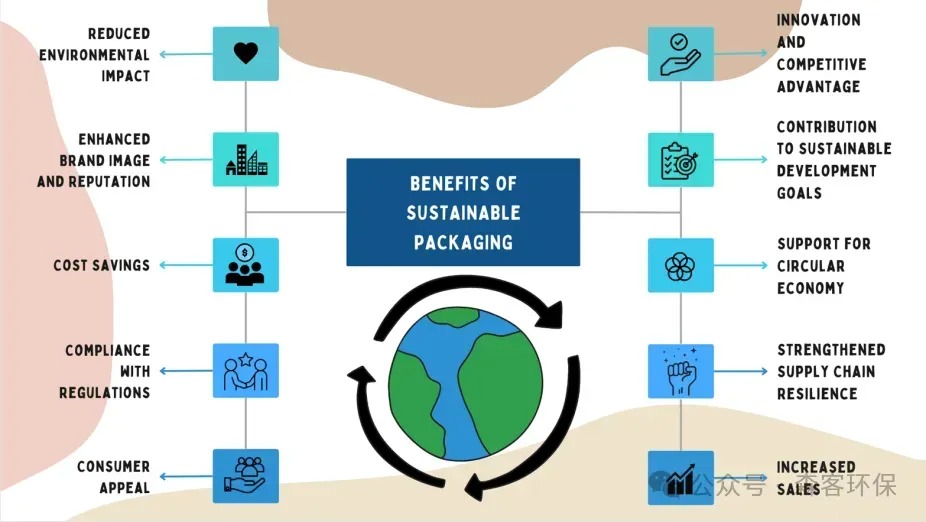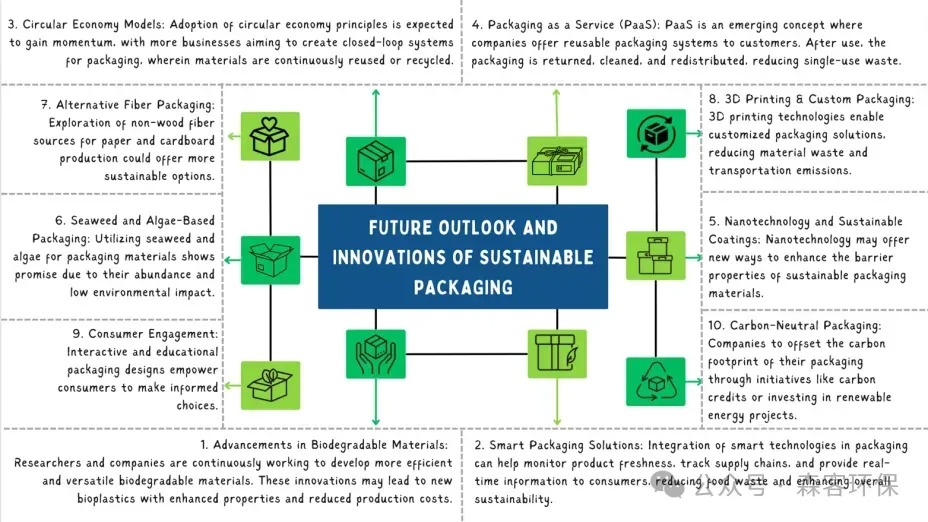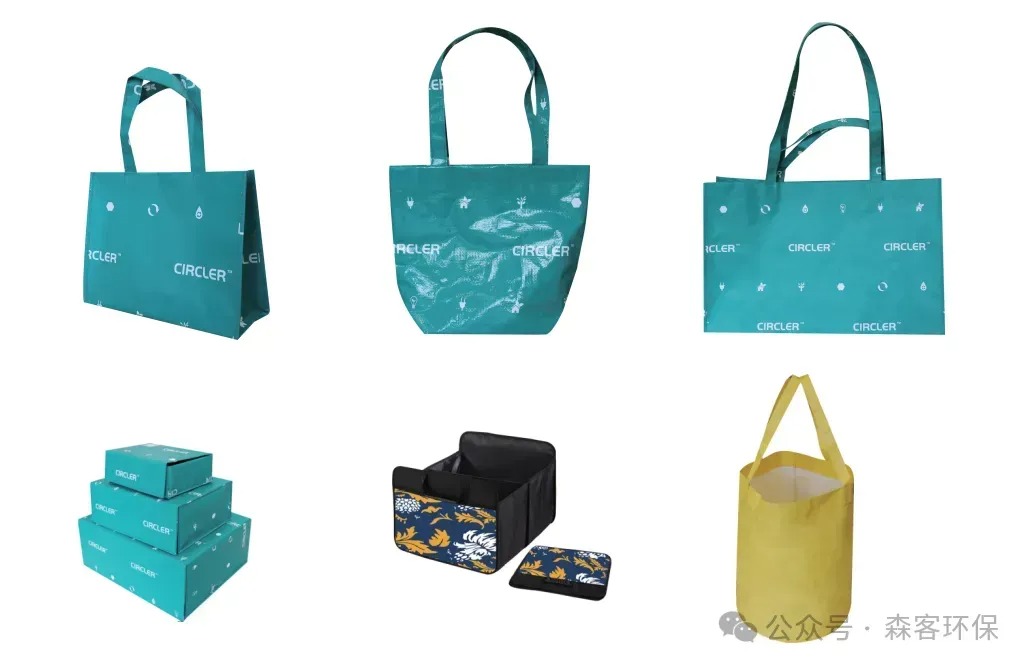
In a world where environmental issues are increasingly a concern, sustainable packaging has become a key solution to addressing the environmental impact of traditional packaging practices. As the tide rises with plastic pollution and resource depletion, there is an urgent need for eco-friendly alternatives. Sustainable packaging helps reduce waste, minimize the ecological footprint, and pave the way for a more responsible and renewable future.
Sustainable packaging encompasses a wide range of innovative ideas and eco-friendly choices. Moreover, consumers are becoming more aware of their role in driving change, and their preference for sustainable products further promotes the adoption of environmentally friendly packaging solutions. In this article, we will delve into various aspects of sustainable packaging, exploring its benefits, challenges, and role in shaping a sustainable future for the planet.
Benefits of Sustainable Packaging
The environment positively impacts businesses, consumers, and society. By adopting these eco-friendly practices, we move towards a more sustainable and responsible world. Some of the main advantages of adopting eco-friendly packaging solutions include:

Sustainable packaging: environmental concepts and choices
1. Biodegradable Materials
Biodegradable materials are an essential component of sustainable packaging solutions. These eco-friendly materials naturally break down over time, minimizing their environmental impact. Compared to traditional plastics that can last for centuries, biodegradable options such as compostable plastics (PLA—Polylactic Acid) and plant-based materials offer more environmentally conscious alternatives.
Biodegradable materials help promote a circular economy, reduce plastic pollution, and conserve resources. As consumers and businesses increasingly value eco-friendly choices, biodegradable materials become crucial for sustainable packaging practices. Adopting these innovative materials allows us to move towards a more sustainable future and mitigate the adverse effects of plastic waste on the planet.
2. Recycled Materials
Recycled materials play a key role in sustainable packaging solutions, reflecting environmental responsibility and resource conservation. Recycling packaging materials reduces the demand for virgin resources and prevents ecological degradation caused by post-consumer or industrial waste.
Recycled materials, such as recycled paper, cardboard, and plastics, divert waste from landfills and lower greenhouse gas emissions associated with production. These eco-friendly choices support a circular economy by recycling and renewing materials, reducing waste, and protecting invaluable resources. As eco-consciousness embraces the world, the use of recycled materials in packaging becomes increasingly important.
3. Minimalism
Minimalism embodies the spirit of "less is more," advocating simplicity and efficiency in design. Minimalist packaging minimizes waste and environmental impact by reducing unnecessary materials and components. This eco-friendly approach prioritizes functionality and essential features, eliminating elements that may burden the environment.
The sustainable packaging extension of minimalism spans various industries, from food and beverages to electronics and cosmetics. Simple, clean designs often use eco-friendly materials, such as recycled paper or cardboard that adhere to environmental principles. Sustainability is now a top priority, and environmentally conscious businesses and consumers are taking an interest in minimalism.
4. Water-Soluble Packaging
Water-soluble packaging is an innovative solution in the field of sustainable packaging. This eco-friendly packaging material is soluble in water, replacing traditional packaging and reducing waste while promoting environmental protection. Water-soluble packaging is typically made from biodegradable materials, such as PVA (Polyvinyl Alcohol), which can dissolve completely without leaving harmful residues.
Applications of water-soluble packaging include the delivery of fertilizers or pesticides in agriculture and single-use sachets for detergents and cleaning products. This packaging solution reduces plastic pollution and alleviates the burden on landfills.
5. Plant-Based Plastics
Plant-based plastics, also known as bioplastics, represent a promising advancement in sustainable packaging solutions. These eco-friendly materials offer a greener alternative to traditional petroleum-based plastics, as they are derived from renewable plant sources such as corn, sugarcane, or potatoes. Plant-based plastics have a lower carbon footprint because they absorb carbon dioxide during their growth, making them more environmentally friendly throughout their lifecycle.
They are gaining popularity across various industries, including food, beverages, and personal care products. These bioplastics can be used for bottles, containers, and films, helping to reduce plastic waste and conserve resources.
6. Eco-Friendly Inks and Labels
Eco-friendly inks and labels are an integral part of sustainable packaging strategies. Traditional printing inks often contain harmful chemicals that can affect the environment and human health. In contrast, eco-friendly inks are made from renewable resources and have lower volatile organic compound (VOC) content, thereby reducing their environmental footprint.
Similarly, sustainable labels use recyclable or biodegradable materials, ensuring they adhere to eco-conscious principles. These labels can be easily removed during the recycling process, minimizing pollution and enhancing the recyclability of packaging. By adopting eco-friendly inks and labels, businesses help reduce their environmental impact and support a cleaner, more sustainable packaging ecosystem.
7. Agricultural By-Product Packaging
Agricultural by-product packaging represents a significant advancement in sustainable packaging solutions. Utilizing agricultural waste such as fruit peels, sugarcane bagasse, or even straw to create innovative packaging materials reduces the demand for virgin resources.
These agricultural by-product-based materials are typically biodegradable, compostable, and renewable, making them an eco-friendly alternative to traditional packaging. They help divert agricultural waste from landfills, forming a closed loop of resource utilization. It encourages a circular economy where waste is a valuable resource.
8. Sustainable Fill Materials
Sustainable fill materials are an important aspect of eco-friendly packaging solutions. Traditional fill materials such as polystyrene or bubble wrap can significantly contribute to plastic waste and environmental harm. On the other hand, sustainable alternatives like crushed recycled paper, recyclable air pillows, or biodegradable packing peanuts offer environmentally friendly options.
These fill materials are eco-friendly and protect goods during transportation. They can be easily recycled or composted, reducing the burden on landfills and oceans. By incorporating sustainable fill materials into packaging practices, businesses demonstrate their commitment to reducing plastic waste and promoting more sustainable packaging methods.
9. Closed-Loop Systems
Closed-loop systems are a key concept in sustainable packaging strategies. These systems prioritize the reusability and recyclability of packaging materials, creating a circular economy where resources are continuously regenerated while reducing waste. It eliminates the need for disposable packaging by using packaging that can be recycled, returned, or refilled. This approach promotes responsible consumption and minimizes the environmental impact of packaging throughout its lifecycle.
Businesses that implement closed-loop systems are actively committed to reducing waste, conserving valuable resources, and minimizing their carbon footprint. Consumers also play a crucial role in the return and recycling process, fostering a more sustainable packaging ecosystem.
10. Green Certifications
Green certifications play a vital role in verifying and promoting sustainable packaging practices. Various organizations and certification programs assess packaging materials and products that meet specific environmental standards and grant eco-friendly certifications. Companies demonstrate their commitment to sustainable development and responsible environmental management by seeking and displaying green certification labels on their packaging.
It ensures that sustainable packaging options are rigorously evaluated, considering recyclability, biodegradability, and reduced environmental impact. These certifications provide transparency for businesses and consumers, enhancing their confidence in sustainable choices.
The Future Outlook and Innovations in Packaging
As businesses, industries, and consumers increasingly recognize the need to swiftly address environmental challenges, the prospects for sustainable packaging are optimistic. Innovations in sustainable packaging play a key role in shaping a greener and more responsible future. Some major trends and potential innovations include:

As the packaging industry becomes an integral part of corporate strategy and consumer preferences, it will witness a shift towards more responsible and environmentally friendly practices. Collaboration among industry stakeholders, technological advancements, and an increasing awareness of environmental issues will drive future innovations in sustainable packaging, establishing a more harmonious relationship between packaging and the planet.
Conclusion
Sustainable packaging is a fundamental pillar in the journey towards a greener and more sustainable world. It represents a collective commitment by businesses, industries, and consumers to minimize environmental impact and protect valuable resources. The ongoing efforts to implement sustainable packaging solutions underscore the transformative power of conscious choices. As we continue to advocate for and adopt these eco-friendly concepts and options, we take significant strides towards a future where packaging coexists harmoniously with nature, leaving a positive legacy for future generations.

